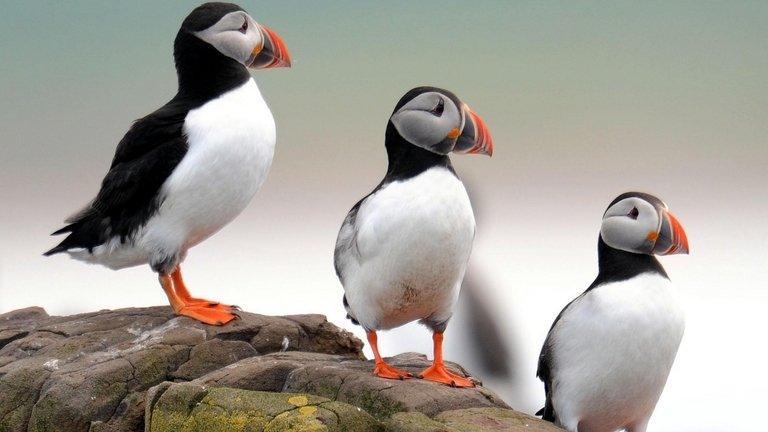Concern over Scottish marine protected areas
- Published
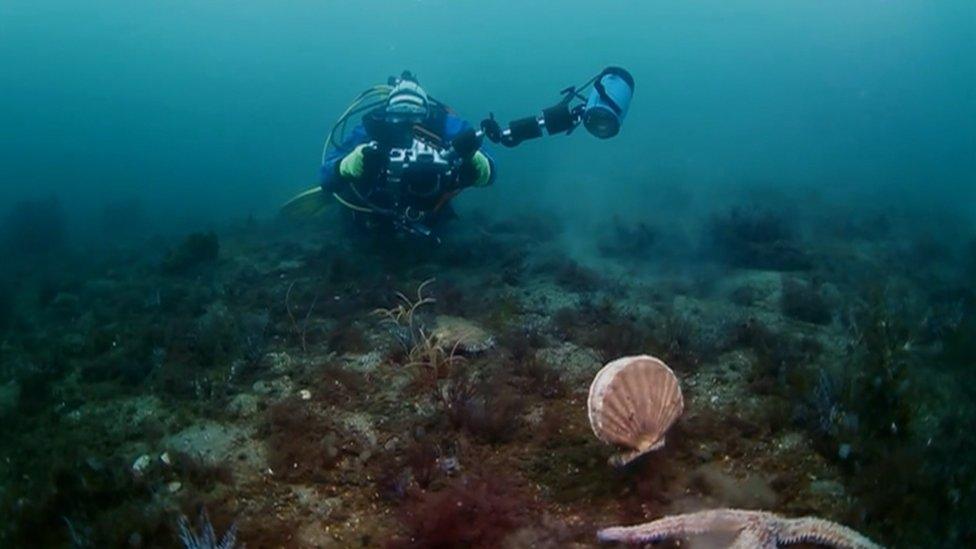
The Marine Protected Areas are designed to safeguard fragile habitats and biodiversity
Fishermen's leaders have warned the creation of Marine Protected Areas around Scotland's coast could result in a modern-day "clearance" that would devastate small fishing communities.
Environmentalists have described the claims as "exaggerated".
And creel fishermen have told BBC Scotland they have been subjected to intimidation after speaking out in favour of the conservation measures.
The network of 30 MPAs has been designed to safeguard fragile habitats.
It includes the largest marine protected area in Europe.
Restrictions will be put in place at the most important sites to prevent damage to the marine environment by scallop dredgers and prawn trawlers.
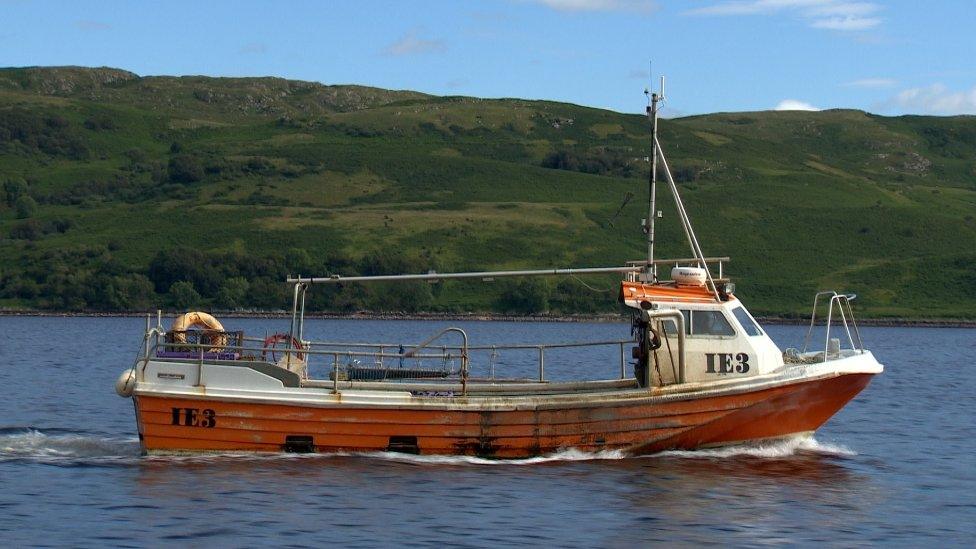
Creel fishermen have spoken out in favour of the conservation measures
But it's claimed lives could be put at risk if skippers have to leave their traditional, sheltered winter fishing grounds.
Calum MacLachlainn, of Isle of Mull Scallops, said: "If they take away our winter grounds, we'll be forced out into areas which are more exposed.
"The way the Scottish government is going with the MPAs and listening to the anti-fishing lobby, I think we'll see funerals before someone changes their mind."
Meanwhile, the Scottish Fishermen's Federation has warned the economic impact of the measures could result in "clearances" of west coast fishing communities.
Bertie Armstrong, the SFF's chief executive, said: "It could be, and I'm choosing my words carefully here, devastating.
"If you want to take a local community and result in a clearance, this is the right way to go about it.
"If you take down small businesses when there's only a small number there, then you will devastate a community."
Marine features
The Scottish government insisted it was striking a fair balance and argued the financial impact on the industry would be limited.
Cabinet Secretary for Rural Affairs, Richard Lochhead, told BBC Scotland: "We believe our restrictions we are proposing to protect these precious marine features are proportionate.
"Indeed, if you look at the mobile fishing sector, we reckon it's between 1% and 1.6% of the cumulative revenues of the fleets affected.
"Of course, hopefully some of these vessels will be able to fish outside of these MPAs."
Environmental campaigners also argued the introduction of the Marine Protected Areas should benefit everyone.
Coastal communities
Calum Duncan, of Scottish Environment Link, said: "The more diverse and complex the seabed is, the more productive it is.
"We all need cool heads. We all need to look at where these habitats are distributed, and manage our activity with the grain of that ecosystem.
"It is that ecosystem that is providing all the employment and all the benefits which the coastal communities enjoy."
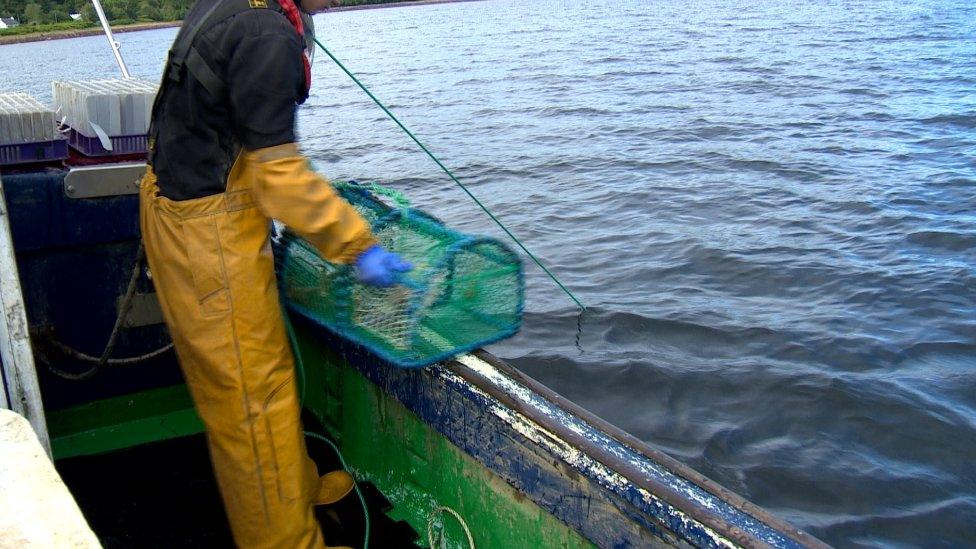
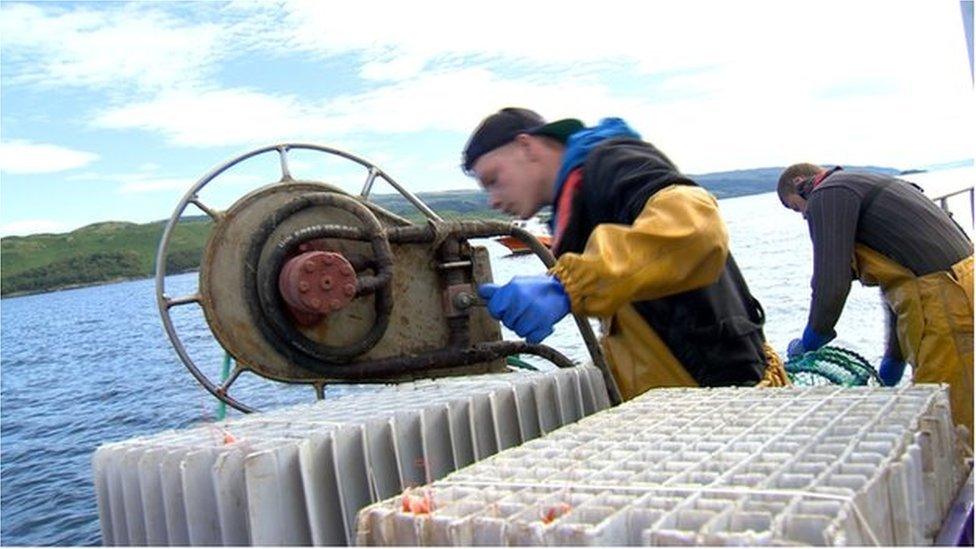
And the Community of Arran Seabed Trust accused the SFF of using "highly emotive, divisive and misleading language" and said it had "no right to claim to speak on behalf of west coast communities or the majority of inshore fishermen".
A spokesman said: "MPAs will help to generate jobs for local communities. The community on Arran for one (and there are many others) has suffered from decades of weak fisheries management, over-fishing in its waters and extensive damage to fragile marine habitats from scallop dredging and bottom trawling.
"Our once-vibrant fishing festival and many others around the Clyde are long gone. The South Arran Marine Protected area will offer some well overdue protection to our marine environment and in time will help to regenerate fish stocks."
Ministers have also won the support of the Scottish Creel Fishermen's Federation, which represents the majority of boats on the west coast.
It said it was time for the seas to be allowed to recover from decades of industrial bottom-towed fishing.
'Poor governance'
Alistair Sinclair, the federation's national co-ordinator, believes the introduction of MPAs is simply the "start of a process" and describes any comparison with the Highland Clearances as an "affront".
Mr Sinclair is a creel fisherman himself. He fishes the waters of Loch Fyne in Argyll.
As two young fishermen pulled in a line of creels containing the day's catch, he told me: "The reason we are where we are today is the fact that we have had poor governance as far as fisheries are concerned.
"I am glad to say that Richard Lochhead and Marine Scotland have actually grasped the nettle.
"They've decided there has to be a change here if there's to be a future for guys like the two lads working behind us."
- Published16 February 2015
